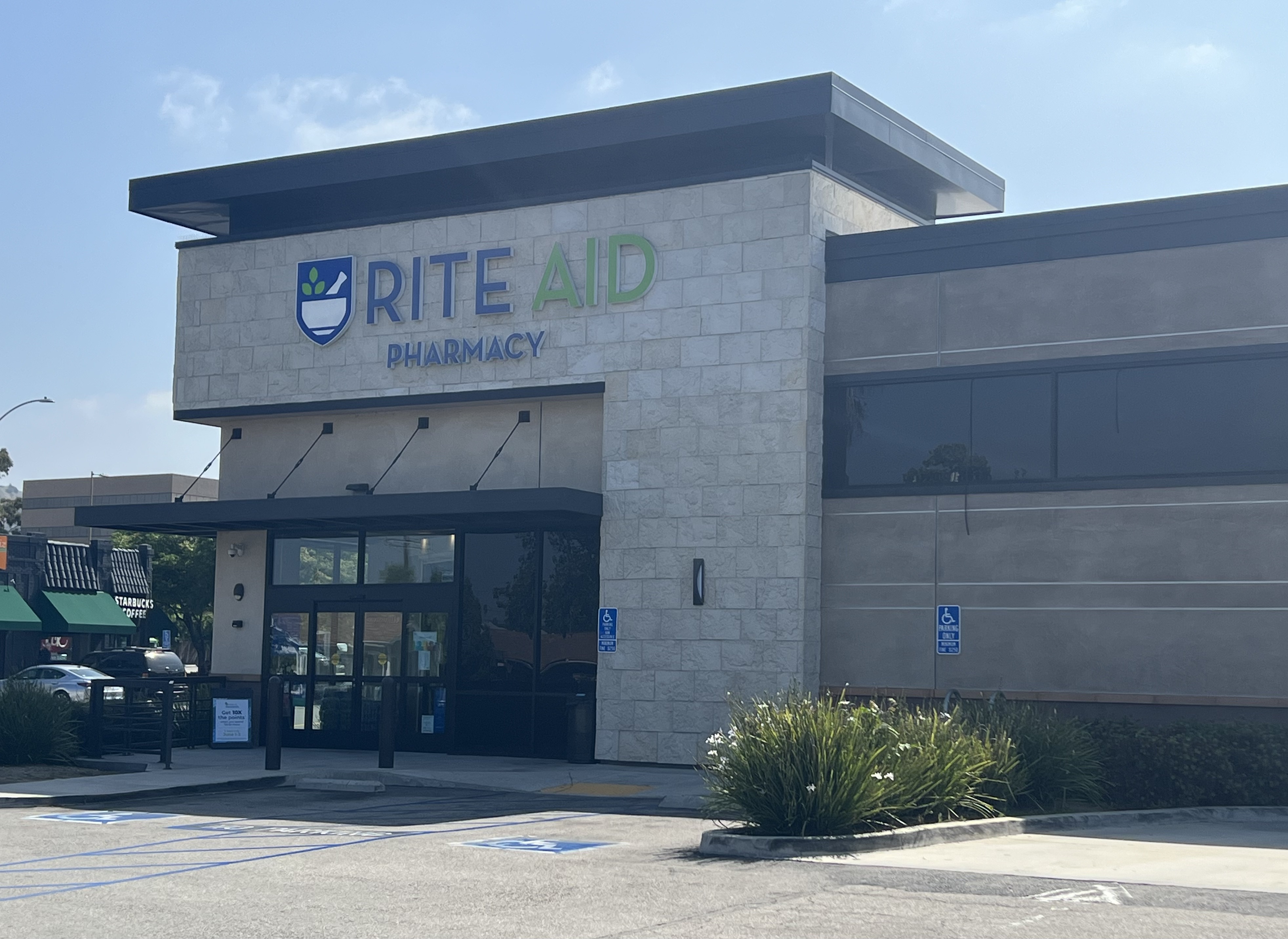Eagle Scout, idealist, drug trafficker?
Published 12:00 am Sunday, January 19, 2014

- Lyn and Kirk Ulbricht plan to live in New York to be near their son, Ross, as his case unfolds. Ross Ulbricht is accused of being Dread Pirate Roberts, the kingpin of the illicit online drug market Silk Road. Erich Schlegel New York Times News Service
Ross Ulbricht’s last moments as a free man were noisy enough to draw a crowd. Employees at the Glen Park branch of the San Francisco library heard a crashing sound and rushed to the science fiction section, expecting to find a patron had hit the floor. Instead, they found a handful of federal agents surrounding a slender 29-year-old man with light brown hair and wearing a T-shirt and jeans.
The goal of the arrest, at 3:15 p.m. on Oct. 1, 2013, was not simply to apprehend Ulbricht but also to prevent him from performing the most mundane of tasks: closing his laptop. That computer, according to the FBI, was the command center of Silk Road, the world’s largest and most notorious black market for drugs.
In just 21/2 years, the government says, Silk Road had become a hub for more than $1.2 billion worth of transactions, many of them in cocaine, heroin and LSD.
The site was like an eBay for the illicit, celebrated by drug enthusiasts, denounced by U.S. senators and stalked by four federal agencies.
But because it was run on Tor, an encrypted Internet network, and because it merely connected buyers and sellers — rather than warehousing any products — it seemed to operate in a vaporous cloud. It was a business without infrastructure, other than a few servers and that laptop, which on 3:14 that October afternoon sat on a library desk, open.
Had Ulbricht seen the FBI coming and simply closed the laptop, password protections probably would have kicked in, turning the hard drive into what Nicholas Weaver, a researcher at the International Computer Science Institute, called “an encrypted lump” that would have been “tougher to break into than Fort Knox.”
Whatever tactics were used — the FBI would not comment — they worked. Ulbricht was administering Silk Road when he was grabbed, the bureau said in a criminal complaint, and working under an alias, Dread Pirate Roberts, the name of a swashbuckling character from the novel and film “The Princess Bride.”
The government later released screen photographs showing that Ulbricht was logged into a page titled “mastermind.” According to the government, operational files were found, including ledgers that tallied personal revenue of 600,000 Bitcoins, the crypto-currency used for every Silk Road transaction, a stash that, at the time, was worth $80 million.
A criminal complaint laid out the charges, which included narcotics trafficking, computer hacking and money laundering. An indictment in a parallel but separate investigation, run out of Baltimore, included this startling detail: Some of Dread Pirate Roberts’ booty was spent to commission killings — six killings in total, to be done by hit men whose targets were deemed by Dread Pirate Roberts to threaten Silk Road.
None of the orders resulted in actual deaths, the authorities said. One, in fact, was an elaborate fiction concocted by a federal agent posing as a drug dealer. In a scene that sounds as if it were lifted from “Breaking Bad,” federal agents traveled to Utah to fake a beating and execution, sending the evidently grisly photographs to DPR, as the government calls him in its complaint.
“What’s done is done,” DPR would later write to the putative dealer.
News of Ulbricht’s arrest, and the particulars of the crimes with which he was charged, elicited the inevitable chorus of “They’ve got the wrong guy” from friends and relatives, an almost clichéd feature of double-life cases. But this chorus was different. Sure, Ulbricht took his share of drugs growing up in Austin, Texas. And a high school buddy, Thomas Haney, said he could sort of imagine Ross buying from Silk Road. But running it? Ordering killings? No way.
“It’d be like they accused my mother of trying to kill someone,” said Haney, who now lives in Boise, Idaho. “He’s one of the most guileless and nonaggressive people I’ve ever met.”
A man who shared a house with Ulbricht in San Francisco for two months remembers how he rushed to help an elderly homeless woman in a wheelchair.
Far from the bloodless kingpin portrayed by the government, Ross Ulbricht, by the accounts of friends and relatives, was soulful and sensitive. In a conversation with his childhood friend Rene Pinnell, recorded in 2012 through StoryCorps, a national oral history project, and still posted on YouTube, Ulbricht said that in college he initially refused to sleep with the woman he described as his first love for fear he would wind up heartsick.
“We didn’t have sex for like three months,” he said. “But we’d make out and really, like, get close but never go there. And when we finally did, it was amazing.”
It seems nearly impossible to reconcile the government’s version of Ulbricht with the warm, compassionate person that others describe. Which leaves at least three possibilities.
One, that the government has, in fact, collared the wrong man.
Two, that Ulbricht is a sociopath who concealed a dark side from everyone for years.
Three, that Ulbricht is Dread Pirate Roberts — and that the two are not really that different.
A trusted emporium
By relying on Bitcoin and an encrypted Internet network, Silk Road created an anonymous bazaar where drugs could be bought from the comfort of home. No more drives to seedy parts of town, no more face-to-face encounters with shady dealers. Instead, transactions would be conducted through the mail, and, in what many academics regard as the linchpin to the business-model innovation, Dread Pirate Roberts devised a system to ensure that nobody got fleeced.
The site acted as an intermediary, hosting the online market and holding money in escrow until buyers confirmed that products had arrived. DPR would then release the payment to the seller, keeping 8 to 15 percent of the transaction.
“He had basically commoditized security,” says Nicolas Christin, an assistant research professor at Carnegie Mellon University who has studied Silk Road. “It was a system that allowed people to buy drugs without fear that they would be ripped off.”
Within months of its start in January 2011, the site was thriving. Sellers posted photographs and descriptions of their products, like “10 x 10mg OxyContin” and “5G Pure Cocaine Cristal.” A guide offered tips for newcomers. Vacuum-sealed packages were recommended for anyone mailing narcotics to avoid detection by “canine or electronic sniffers,” and post office boxes were urged for buyers. Reviews were posted, just as on eBay.
Anyone with minimal computer literacy could access this superstore of criminal mischief.
An Eagle Scout
Lyn Ulbricht, Ulbricht’s mother, sat one recent morning in the downtown Manhattan office of her son’s lawyer. She had flown in from Austin a few days earlier to look for a place where she and her husband could live to be close to their son.
“I can’t be somewhere else while he’s in jail,” she said. “We want to visit him. We believe in him, so that’s what we’re going to do.”
Ross Ulbricht grew up in a suburb of Austin that his mother described as the poorest neighborhood in a good school district. She and her husband, Kirk, earn most of their income renting four beachside vacation houses they own in Costa Rica. Ross Ulbricht is remembered by friends as bright, though not whiz-kid bright, part of a circle that mostly avoided the football culture that dominated high school.
“He was outdoorsy,” said James McFarland, who met Ulbricht in a physics class. “We played a lot of Ultimate Frisbee, hiking, swimming, that sort of thing.”
McFarland and others say he was shy around girls, sweet-natured, loyal to friends and a fan of intense philosophical conversations. He was also an unusual combination of rule follower and rule breaker. He did a lot of drugs, as he explained in that StoryCorps conversation, likening his intake to a guy who jumped into the deep end of a pool and stayed underwater for as long as he could hold his breath. At the same time, he collected enough merit badges to become that emblem of teenage all-Americanness, an Eagle Scout.
After graduating from University of Texas at Dallas in 2006 with a degree in physics, Ulbricht headed to Penn State, where he earned a master’s degree in material sciences and engineering.
At the invitation of Pinnell, Ulbricht relocated to San Francisco in 2012. When Pinnell became engaged, Ulbricht moved into a group house, where he told roommates that his name was Joshua Terrey, according to an article in Forbes. In August, two months before he was arrested, he abruptly left that house for another, without explanation.
His new accommodations were hardly those of a drug lord. He paid $1,100 a month for a 12-by-14-foot room, sharing a house with three roommates. One of those roommates said that they knew him by his real name and that he told them he earned a living by building and managing websites.
Nothing about him seemed out of the ordinary, until he was arrested. That day, his roommates returned to their house to find a search warrant left by the FBI on the coffee table in the living room.
Nine fake IDs
How did the FBI connect Dread Pirate Roberts to Ross Ulbricht? That is still a mystery. Ulbricht certainly left more than a few digital crumbs, according to the government’s complaint and a variety of online rubberneckers who followed the case. The first mention of Silk Road online, in January 2011, by someone called “altoid,” was followed a few months later by a user with the same alias on a Bitcoin Talk forum. This person was searching for an IT pro for hire. Applicants were asked to email “rossulbricht at gmail dot com.”
But this was only enough to make Ulbricht a person of interest. In July 2013, Customs and Border Protection intercepted a package from Canada bound for his address. The package contained nine fake IDs, each bearing a photograph of Ulbricht and a different name, with addresses in a variety of states and countries.
On July 26, agents of Homeland Security Investigations knocked on the door of Ulbricht’s group house. “Josh,” as he then was calling himself, refused to answer most of the agents’ questions, the government would say later.
Though Ulbricht did not take the opportunity to skedaddle, he apparently had considered it. The government would say later that his laptop contained a filled-out application for “economic citizenship” in Dominica, a Caribbean island. The price was a one-time donation of $75,000 to the country’s government.
The crucial breakthrough in the case occurred a few weeks after that fake ID package was intercepted. The FBI located and copied the contents of Silk Road’s main servers, the computers that powered the site’s operations and stored its data.
It is here that the government’s otherwise detailed account gets fuzzy. The FBI has stated only that the main server was found in “a certain foreign country,” one that has a mutual legal assistance treaty with the United States. Through the treaty, the FBI was given a copy of the server — a “mirror” of it, in tech terms — on July 23. The site continued to operate, so DPR would not be spooked.
What is unclear is how the feds knew where the servers were. Presumably, they were rented in some faraway corners of the globe — Iceland, Latvia and Romania are likely, according to experts who have studied the IP addresses. But the official vagueness has provoked speculation in academic circles and among security specialists. Was the National Security Agency involved? Did this process involve breaking laws or violating constitutional rights?
That issue will be at the heart of Ross Ulbricht’s defense strategy, says Joshua Dratel, his lawyer, whose clients include a Guantánamo Bay detainee.
Dratel said he would also argue that Ulbricht is not Dread Pirate Roberts. But that contention could be hard to square with a sworn statement by Ulbricht, filed with the court Dec. 12. It says the Bitcoins seized from the laptop should be returned to him, because he “has an interest as an owner/possessor” of the money.
This seems a tricky needle for Ulbricht to thread. He is denying that he is Dread Pirate Roberts but demanding what the government maintains is DPR’s money. How did Ulbricht earn millions in virtual dollars, if not through Silk Road commissions?
Dratel declined to say, citing a reluctance to discuss the facts of the case.






